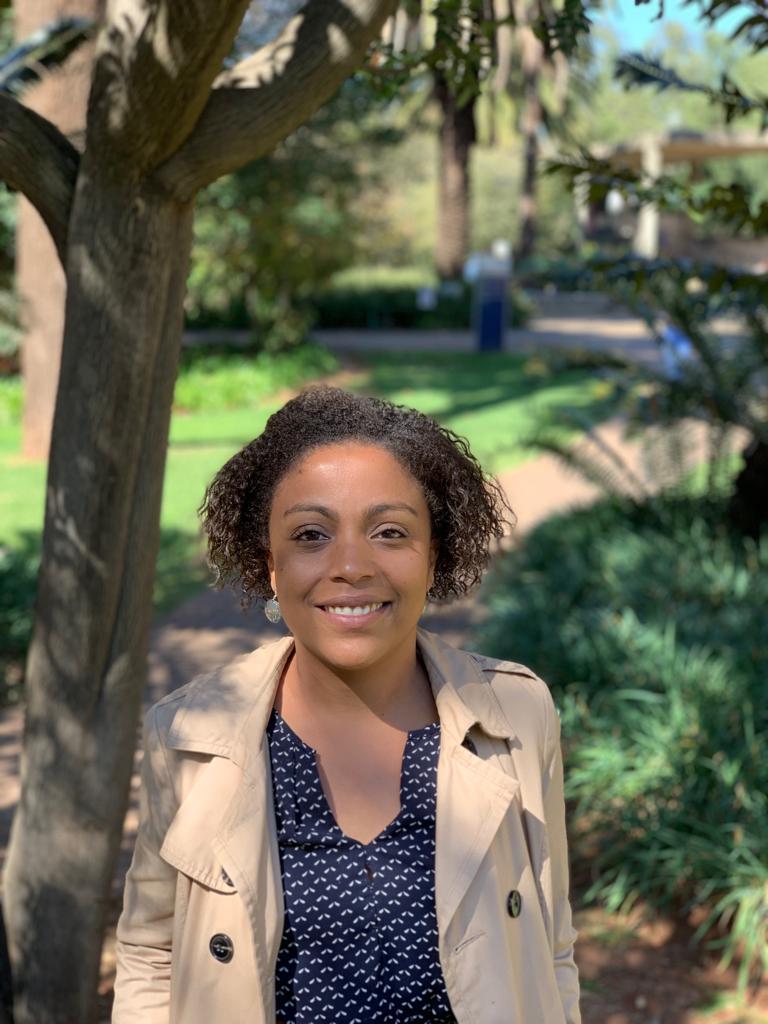
Dr Rihlat Said Mohamed announced as new lecturer in the Department of Archaeology.

The Department of Archaeology is pleased to announce Dr Rihlat Said Mohamed as the new lecturer in Comparative Human Biology.
Dr Said Mohamed studied biology, ecology and development studies at the University Paris-Sud (France). She then completed her Masters and her PhD in Biological Anthropology at the UMR CNRS-MNHN 7206 Eco-anthropology and Ethnobiology at the National Museum of Natural History of Paris (France).
Between 2012 and 2019, she was a post-doctoral research fellow and then a research fellow at the MRC/Wits Developmental Pathways for Health Research Unit (DPHRU, University of the Witwatersrand) in South Africa. In 2019, she joined the South African DST-NRF Center of Excellence in Human development as a Senior Researcher. Currently, she represents the Emergent Researchers of the African chapter of the International Society of the Developmental Origins of Health and Diseases (DOHaD).
Rihlat uses life history theory and an evolutionary public health framework to understand the evolution of human growth and development, and the health of contemporary human populations.
Changes in diet and lifestyle have contributed to shape human growth and development patterns. With recent demographic and nutrition transitions, we can observe dramatic epidemiologic shifts. Based on our current knowledge of how evolution and its forces have shaped human life history, Rihlat's work seeks to describe plasticity in growth and body composition during developmental periods (fetal, infancy, childhood, adolescence), to identify environmental triggers, and to understand life-course and intergenerational consequences on health in different social and cultural contexts.
To date, Dr Said Mohamed’ s research has specifically focused on unravelling environmental causes and biological consequences of malnutrition in early life and their associations with metabolic health in rural and urban populations in sub-Saharan Africa.
In the field, she integrates methodologies from biological anthropology, nutrition and life-course epidemiology. In Cameroon and in South Africa, Rihlat investigates the biological, social, and cultural determinants of growth retardation (stunting) and overweight while testing whether body fat storage in previously stunted persons could be associated with physiological adaptations to undernutrition, diseases and adverse sociodemographic factors during developmental periods.
More recently, her research has been geared towards understanding the roles of parental investment and of the community on how energy budget is allocated between biological functions at different stages of the life-course, the underlying biological mechanisms and the consequences on health.
Rihlat says “It is such a great pleasure and an amazing opportunity to join the Department of Archaeology and the team of biological anthropologists at Cambridge. I am really looking forward to this exciting journey, to collaborating with passionate and brilliant colleagues and students from various disciplines, and to sharing visions, knowledge, ideas, learnings and experiences! I am also very grateful to all the persons I met, worked with, engaged with, debated with, and trained throughout my trajectory – mentors, colleagues, students, friends and family – all their support, guidance and interactions help me in navigating this career.”
Head of Department, Prof Marie Louise Stig Sørensen, said, "We are excited to welcome Rihlat to the Department of Archaeology. Her research is tremendously interesting and she will be a valuable addition to this field within Biological Anthropology. We look forward to having her as a colleague."
Dr Said Mohamed will take up the lectureship from September 2019.

